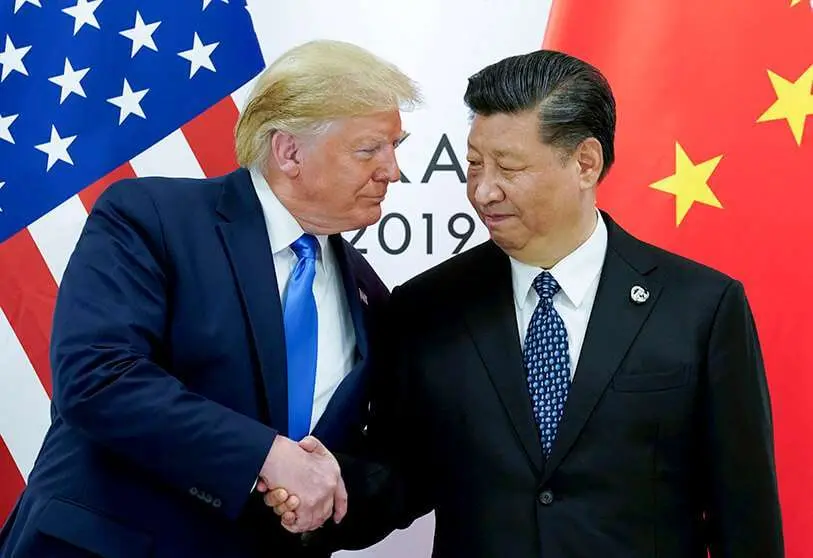United States moves away from global political and economic leadership in favor of China

The pandemic has not erased geopolitical rivalries. The drums of war (trade) have been sounded several times over the past year between China and the United States. At the height of the COVID-19, the two countries levelled accusations at each other about the origin of the virus and it became clear that not even the worst pandemic in a century could stop the friction between the world's two major superpowers. The United States has kept the Asian giant's finger on the pulse in recent years, but is beginning to show signs of exhaustion and Chinese domination is becoming increasingly evident politically and economically. With the aim of analysing this convulsive situation, the Institute of Strategic Studies presented a new report on Tuesday, which has been presented virtually.
"China has already overtaken the United States in purchasing power and are the two largest economies in the world. Europe is the third and the new playing field between both powers will be Latin America, which if it were an integrated market would be the fourth in the world", said Eduardo Olier, president of the think tank Choiseul Institute Spain.
These data lead one to believe that the geopolitical center of the world has shifted from the Atlantic to the Pacific. Europe has been left in the background. "The United States has dominated the world in the 20th century thanks to a highly qualified population and a large investment in research, but this competitive advantage has been reduced with respect to China," said economist Rafael Doménech, who pointed out that if China's convergence process does not come to an abrupt halt in the next few years, its GDP could be 50% to 75% higher than that of the United States in the coming years. "We don't know what will happen in the future, but ideally Europe, China and the United States should cooperate in the future instead of engaging in trade wars to deal with challenges such as digitisation, climate change or future pandemics," said Domenech.
The axis of the world has shifted to Asia not only from China. Also Korea, Singapore, Taiwan or Japan are at the forefront of technology. "They have faced pandemics like SARS or MERS before and were more prepared to deal with this threat. Asia in general and China in particular have a great capacity to respond," explains Águeda Parra, a sinologist with a doctorate in political science.
For university professor Emiliano G. Coso the key in the future will be for Europe to look for a formula to not depend so much on the United States in military matters. "Europe cannot confront China in any way," he said. China has taken military issues very seriously and has therefore developed a very powerful army with the capacity to make a stand in the Pacific, an area in which the authorities have set themselves a preference for expanding their influence.








